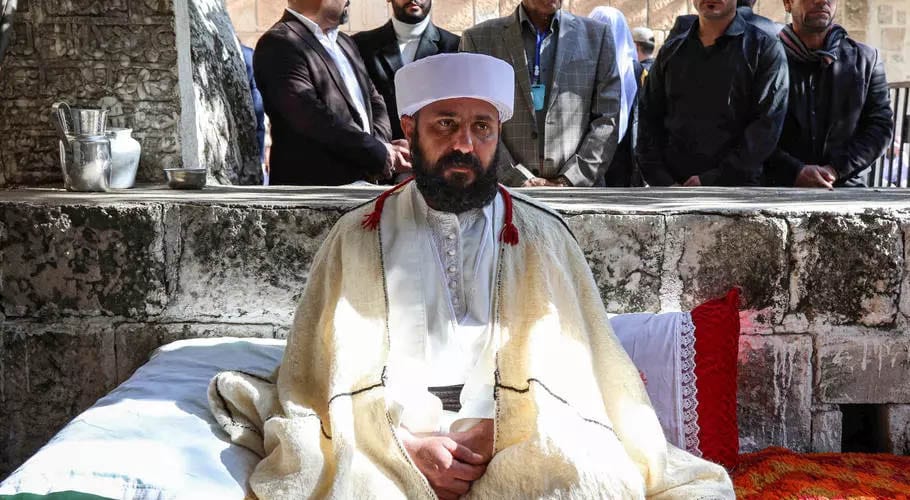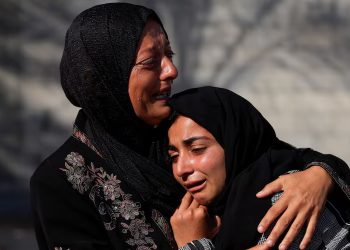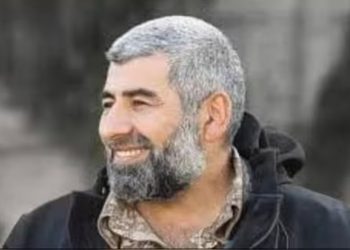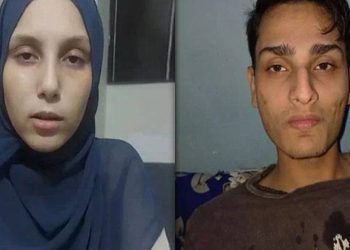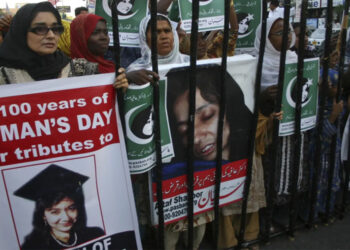ERBIL: The minority Yazidis crowned a new spiritual leader at their holiest site of Lalish in northern Iraq, nearly two months after the death of their top cleric.
Ali Alyas was formally named as the Yazidi “Baba Sheikh,” the title for the religious guide of the esoteric community ravaged by the Islamic State group in 2014.
In his 40s, he is relatively young to receive the title. The Yazidi’s strict caste system stipulates that clerics can only hail from specific clans. Alyas’s father was also a “Baba Sheikh.”
Hundreds of worshippers wearing medical masks gathered at the stone shrine of Lalish to pay their respects to the new leader. Women wore brightly coloured clothes ornately decorated with beads, their hair covered in dainty white veils.
One by one, the worshippers approached Baba Sheikh Ali, who was dressed in neatly-pressed white, with an eggshell-coloured wrap over his shoulders. He sat cross-legged as they kissed the red rug by his feet.
The previous Baba Sheikh, Khurto Hajji Ismail, died in October at the age of 87. The community’s secular chief Prince Hazem Tahsin Bek tapped Alyas as the spiritual leader earlier this week over Ismail’s son.
Many Yazidi activists say the prince did not properly consult the minority’s tribes and other notable figures to make his choice and should have delayed the ceremony. “I suspect new divisions within the community over this decision, which may eventually be rolled back,” activist Talal Murad, who also heads a local outlet covering Yazidi affairs, told a news agency.
Yazidis are monotheistic but they believe God entrusted the world to seven angels, drawing accusations of “devil worship” from followers of other faiths. They are born into their faith and must marry within it: conversions are not permitted and traditionally, those who marry outside are excommunicated.
They number around 1.5 million worldwide, of whom around 550,000 were living in Iraq’s rugged northwest, concentrated around the enclave of Sinjar.
In 2014, Islamic State swept through Sinjar and, branding the Yazidis as infidels, killed the men, took the boys as child soldiers and forced the women into sexual slavery.
Several thousand Yazidis were killed and nearly 100,000 fled abroad, with others internally displaced in Iraq. Yazidis describe it as the latest “genocide” to hit the Kurdish-speaking community in its 4,000-year history.
Ismail was credited with guiding the community through those horrors, particularly by opening the door for Yazidi survivors of IS to return to their families despite having been nominally “married” to men outside their faith.







